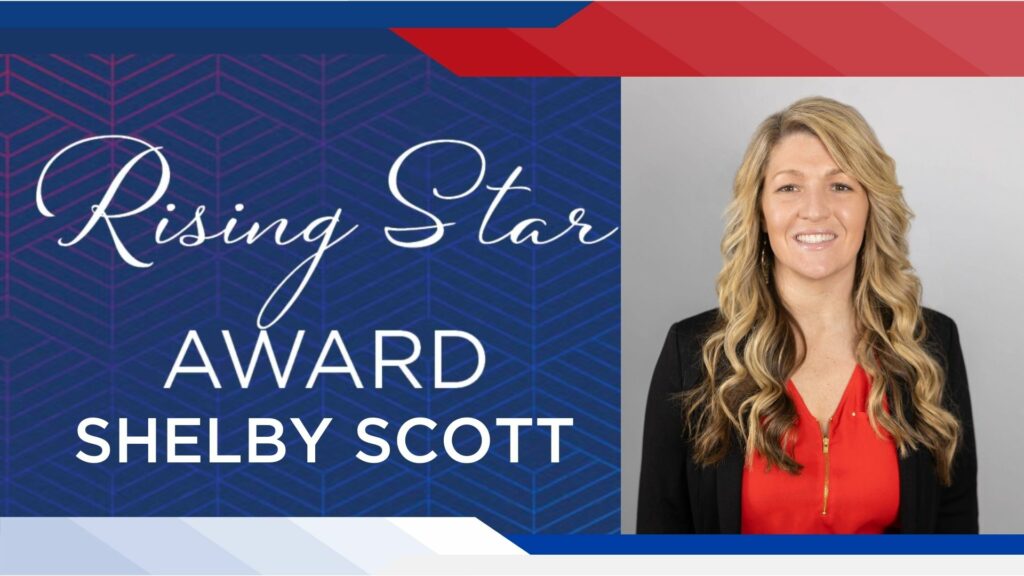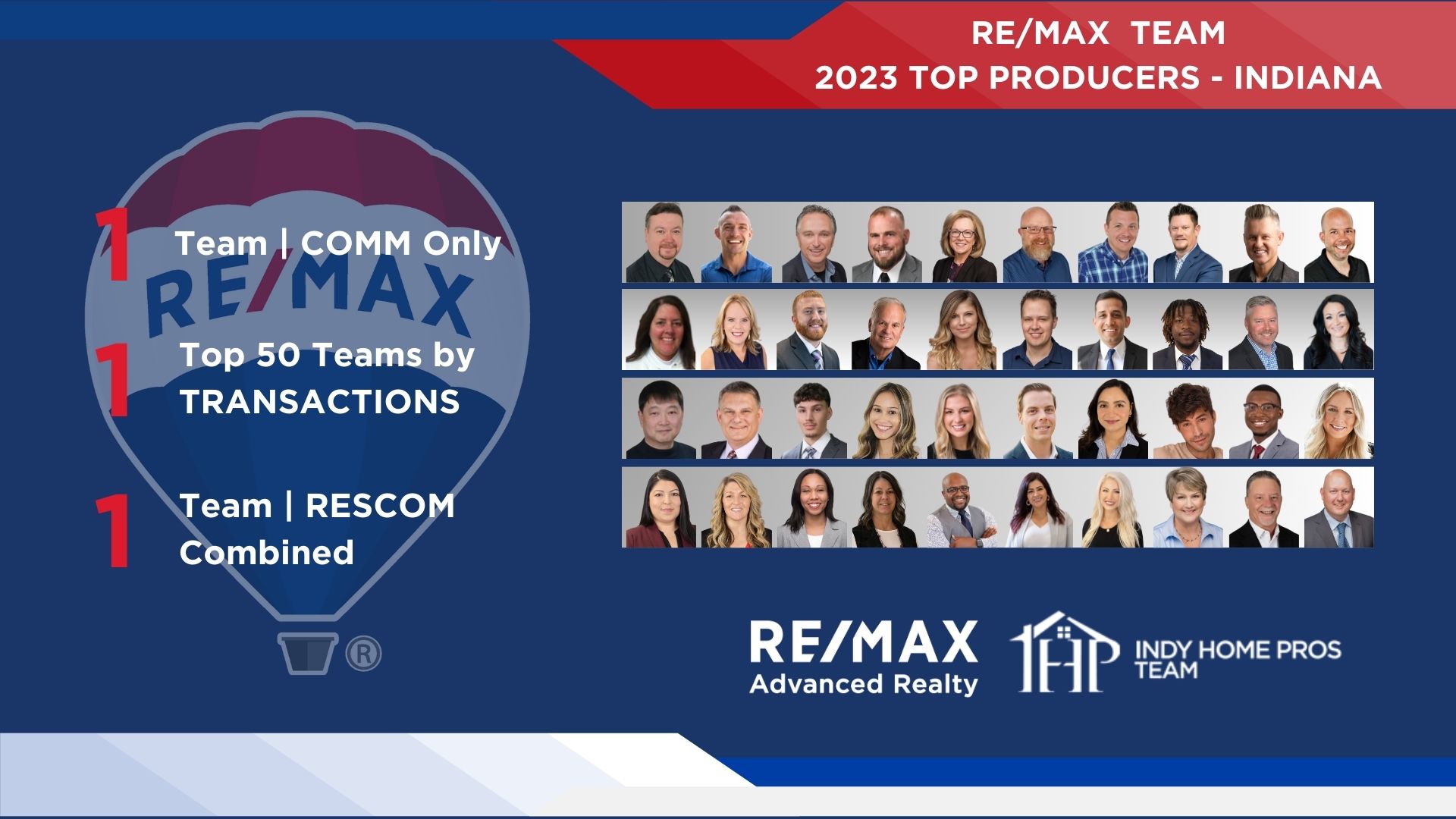Are you in search of your dream home, one that offers luxury, comfort, and tranquility? Look no further than these exquisite properties, listed by our brokerage's agents, which epitomize upscale living. From stunning lakefront log homes to sprawling ranch estates, each of these residences promises a lifestyle of unparalleled sophistication and relaxation. Let's take a closer look at what makes each property unique:

Nestled on the shores of Lamb Lake, this beautiful log home exudes rustic charm and modern elegance. With over 100 feet of lakefront access and a boat dock just steps away, indulge in the serenity of lakeside living. The updated interior features hardwood flooring, a wood-burning fireplace, and a gourmet kitchen with quartz countertops and new appliances. With amenities like water-skiing, boating, and a private beach, every day feels like a retreat in this lakeside haven.

Listed by the Rob Campbell Team
Rob Campbell | 317-695-1315 | Joyce Campbell | 317-691-4627

Experience the best of country living in this stunning ranch estate situated on three manicured acres. The outdoor oasis boasts a heated saltwater pool, cabana, and spacious screened porch, perfect for enjoying the serene surroundings. Inside, the gourmet kitchen, spacious great room, and finished basement offer ample space for entertaining and relaxation. With updates including a new roof, HVAC system, and generator, this home combines luxury with peace of mind

Listed by the Rob Campbell Team
Rob Campbell | 317-695-1315 | Joyce Campbell | 317-691-4627

Welcome to modern elegance in the sought-after Rock Bridge neighborhood. This 5-bedroom home features a gourmet kitchen, great room with stone fireplace, and finished basement with theater equipment. Outside, the fenced backyard offers a pergola, hot tub, firepit, and lush landscaping, creating an idyllic setting for outdoor gatherings. With recent updates including a geothermal system and tankless water heater, this residence offers the perfect blend of luxury and functionality.

Listed by Ryan Hendren | (317) 985-4887

Escape to the tranquility of this custom-built log home nestled on nearly 16 wooded acres. From the soaring ceilings and stone fireplace to the wrap-around porch and screened gazebo, every detail exudes charm and elegance. With two master suites, a bonus room, and a spacious pole barn, this home offers endless possibilities for relaxation and recreation amidst nature's beauty.

Listed by Joy Hickman | (317) 414-0698

Embrace the charm of country living in this all-brick ranch nestled on nearly 5 acres. Custom features abound, from vaulted ceilings and gourmet kitchen to heated garages and storage barns. With ample space for a home-based business or automobile collection, this property offers the perfect blend of luxury and functionality.

Listed by Keith Turnbill | (317) 626-0800

Discover your own nature preserve in this secluded wooded retreat, just minutes from downtown Indianapolis. With spacious bedrooms, multiple living areas, and a screened porch overlooking the lush surroundings, this home offers the perfect blend of indoor and outdoor living. Recent updates including new flooring, HVAC system, and security features ensure comfort and peace of mind for years to come.

Listed by Dana Wright | (317) 200-9090
From lakeside retreats to sprawling estates, these luxury properties offer the perfect blend of elegance, comfort, and tranquility. Contact us today to schedule a private tour and experience the epitome of upscale living firsthand. Your dream home awaits!
Success is a journey marked by dedication, hard work, and passion. As we reflect on the achievements of March, we take pride in extending our heartfelt congratulations to the outstanding efforts of our top performers at RE/MAX Advanced Realty. Let's shine the spotlight on these remarkable individuals who are turning dreams into keys! 🌟🏡
In March 2024, these agents went above and beyond, setting new standards of excellence and making significant strides in the real estate industry. Join us in celebrating their dedication, perseverance, and commitment to providing exceptional service to their clients. Here are our top producers for March:

As we celebrate the achievements of our top producers for March, we look forward to another month of setting new benchmarks and creating more success stories together. Here's to turning dreams into keys and making homeownership a reality for all! 🚀👏
Are you in search of your perfect home sweet home? Look no further! Join us this Sunday, April 7, 2024, from 1 pm to 3 pm for the RE/MAX Advanced Realty Open House Weekend. We're thrilled to showcase a selection of exquisite properties that embody luxury, comfort, and style. Don't miss out on this opportunity to explore these stunning homes and envision your future in one of these remarkable spaces.
 1545 Windswept, Brownsburg, IN 46112
1545 Windswept, Brownsburg, IN 46112
Hosted by Listing Agent: Jason Dodd | 317-779-9545
Directions: DO NOT FOLLOW GOOGLE MAPS!! From 267 N (Green Street), turn west on E Co Rd 700 N, turn north on Windview Dr, turn right on Windborough Dr, turn left at the "T", second house on the right.
Nestled in the prestigious Windridge landing, this former model home is a true gem. Boasting 4 bedrooms and 3.5 bathrooms, this residence offers an abundance of space and luxury. Highlights include a gourmet kitchen with a 10' island, SS appliances, and double built-in ovens. Relax in the massive master retreat or entertain guests in the large rec room in the finished basement. With a covered porch, covered rear patio, and a 5-person hot tub, outdoor living is taken to the next level.

8126 Kilborn Way, Avon, IN 46123
Hosted by Listing Agent: Jordan Wirth | 317-549-5363
Directions: GPS Friendly!
Experience luxury living in this quality-built M/I home situated on a 1/3 acre lot. Featuring 4 bedrooms, 2 1/2 bathrooms, and a 3-car garage with an insulated workshop, this home is perfect for any family. The kitchen is a chef's dream with quartz countertops and a double oven, while the enormous master bedroom offers a spa-like experience with its walk-in shower and vaulted ceiling. Outside, a pergola and patio space provide the ideal setting for outdoor entertaining.

9913 Stable Stone Ter, Fishers, IN 46040
Hosted by Khushvinder Kailey | 317-478-7607
Directions: GPS Friendly!
Indulge in luxury living in this exquisite 5-bedroom, 5.5-bathroom masterpiece by Drees Homes. Every detail of this home exudes sophistication and comfort, from the gourmet-style kitchen to the expansive windows offering panoramic views. The master bedroom is a sanctuary of indulgence, featuring a private retreat and a spa-like en-suite bathroom. Downstairs, the finished basement with a wet bar is perfect for hosting gatherings.

5662 Beale St, Plainfield, IN 46168
Hosted by Listing Agent: Mukul Khanna | 317-203-9593
Step into modern luxury with this inviting 4 bedroom, 2.5 bathroom home in the heart of Plainfield. With luxury vinyl plank flooring, a contemporary kitchen, and a spacious family room, this home is perfect for entertaining. Relax on the extensive concrete patio overlooking the neighborhood pond. Directions: GPS Friendly!
Don't miss your chance to explore these remarkable properties during the RE/MAX Advanced Realty Open House Weekend! We look forward to welcoming you and helping you find the home of your dreams. See you there!
In this day and age, it is quite rare for a person or family to have much control over when they move. Whether your growing family makes it so that you need more space or your job takes you to a new city, most people often have a window of a few months or at most, a year within when to move.
If life has made it so that you need to sell your house, or if you're one of those lucky few who has a bit more freedom in the choice, you're probably asking yourself if now is the right time to sell your Indianapolis home.
Prices are certainly lower than they were in years past, but that's not always a bad thing for people who are looking to sell. It may be that by selling your current Indianapolis home, you'll be able to upgrade to a bigger place or a nicer area without spending nearly as much as you would've had to in years past. This is also an ideal market for purchasing foreclosed homes, which can be bought for significantly less than their market value.
But, the question, however, is this: is NOW the best time to sell a house in Indiana?
When it comes to the best time to sell a home, it depends on your goals. For instance, are you going to put your property on the market for profit or sell it quickly?
The best time to list homes for sale in Indiana is in May, June, and July. In July 2023, the median selling price for homes was $258,600, which is expected to increase this 2024.
On average, homes stay on the market for 41-43 days during June and July. This makes it 10-15 days shorter than the rest of the month, making these months the best time to close a home sale.
However, there are people who have strict home-selling timelines, and these are usually the ones who have to relocate because of work location. Normally, they do this during November and December.
Properties listed at the beginning of the week, let's say Monday or Tuesday, often stay longer on the market.
If you want to improve your chances of selling your home quickly, list it on Thursday. This is the "pre-weekend" and they have time to look at online listings and plan their open homes tour.

As always, the best time to sell a home is during spring; however, if you want to sell it quicker and for a higher profit, it's recommended to list your property in late spring or early summer.
Putting your home on the market during these seasons is better because of the following reasons:
Winter, however, can still present a chance for a warmer climate home sale. Investing in a vacation home is the reason why buyers travel to Indiana.
When selling a home, here are the things you need to consider:
Work - Whether it's a better job offer or a current one requiring you to move into a new location, this might force you to sell your home in the market.
Neighborhood - Perhaps you're looking for a home closer to your kid's school or you want a safer school, this might call for a relocation.
Divorce - After a divorce, the ex-couple might decide to sell a home for practicality and perhaps, sentimental reasons. That said, moving to a home is not just an option but a decision to make.
Interest Rates - The demand for mortgages is increased by lower interest rates. This has an impact on the real estate market, which raises property prices.
Economy - The employment rate, GDP, manufacturing activity, cost of goods, and other economic variables all have an impact on the Indiana real estate market.
Government Policies - The government can introduce tax credits, subsidies, and deductions to establish a housing market that is advantageous temporarily.
Downgrading - You can sell your bigger home and move into a smaller one if you're trying to reduce your property taxes, homeowners insurance, and HOA dues.
Affordability - The affordability of buyers is influenced by the average mortgage rate. Make sure to find out ahead of time whether interest rates are rising or falling.
Equity For A New Home - You can sell your current house when the equity has grown to the point where an adequate down payment is required.
Want to know more about Indiana's real estate market?
To learn more about the current housing market and find out how your home would fare compared to other Indianapolis homes for sale right now, talk to us today so we can assist you with your concerns.
By working with an agent at RE/MAX Advanced Realty, you can be sure that regardless of market conditions, your home sale will be handled professionally and as quickly as possible. A RE/MAX realtor can also help you find your next home, wherever you may be looking.
The chilly winter months are officially over; now, the real estate industry is getting ready for spring's busiest season. As the days get longer and the weather warmer, many homeowners consider listing their homes for sale in spring as this is the ideal moment to stand out in a highly competitive market.
Buyers are ready to move before summer, the weather is more cooperative, and plants bloom. However, increased competition requires careful planning and preparation to sparkle your property. But don’t worry, we’ll have everything you need in this post.
Here’s a quick list for homeowners to get their homes ready for sale in spring:
Spend time organizing and depersonalizing each space before showcasing the home to potential buyers. A clear, neutral canvas that enables home viewers to see themselves living in the area is encouraged by removing extra furniture, sentimental belongings, and family photos.
Prospective buyers must see a clean home, so spend time deep cleaning carpets, windows, and hard-to-reach locations. Think about hiring experts to guarantee a thorough service for window washing or carpet cleaning jobs.
Take care of minor maintenance or repair issues to keep your home appealing. This involves fixing leaking faucets, damaged tiles, and scuffed walls. Buy these basic repairs upfront to avoid purchasers negotiating a cheaper price.
Make an excellent first impression by caring for the outside of your house. Refresh your property with lawn mowing, bushes pruned, and vibrant flowers added to flower beds and pots. To improve curb appeal, think about repainting your front door and installing new house numbers or a chic mailbox.

How prospective buyers view your house can be significantly impacted by proper staging. Organize furniture to maximize available space and flow, and accent your home's best characteristics with appropriate decor. Professional staging services may prove advantageous if you need clarification about where to begin.
Showcase whatever spring-themed features your house may have to make the most of the season. Allow natural light to penetrate rooms by opening curtains, arranging potted plants or fresh flowers, and setting up outside living areas to showcase their capacity for hosting.
In the digital era, photo quality is crucial to attracting online customers. Engage an expert photographer to take pictures of your home from the interior and outside to show it off. High-quality photography is essential because these photographs are the first thing purchasers view when browsing listings.
A skilled real estate agent may offer helpful insight into these areas and provide valuable skills in pricing strategies, effective marketing techniques, and astute buyer negotiation.
Careful planning and close attention to detail are necessary when getting your house ready for a spring list for homeowners. These top tips on how to prepare the house for spring can help you attract buyers and sell it in the active spring real estate market.
The cosmos is aligning for an extraordinary event in Indianapolis, and it's not just about astronomy—it's about embracing the wonders of the universe while immersing yourself in the vibrant culture of the city. Get ready to mark your calendars for the solar eclipse extravaganza happening from April 5 to April 8, 2024, as Indianapolis becomes the epicenter of cosmic celebrations. Let's delve into the stellar lineup of events tailored to make this celestial phenomenon an unforgettable experience.
Date: Fri, Apr 5, 2024 - Mon, Apr 8, 2024
Time: All day
Location: Indianapolis Cultural Trail: A Legacy of Gene & Marilyn Glick, 132 West Walnut Street
Embark on a journey through the solar system right in the heart of Indianapolis with the Indy Solar Stroll. From the Sun to Pluto, this immersive installation stretches along the Indianapolis Cultural Trail: A Legacy of Gene and Marilyn Glick, inviting you to explore planets while discovering the Wholesale and Fountain Square Cultural Districts. Organized in collaboration with Visit Indy, this limited-time experience is your chance to walk, run, or bike through space along the picturesque Cultural Trail.
Solar Eclipse at the Indiana State Fairgrounds:
Date: Monday, Apr 8, 2024
Time: All day
Location: Indiana State Fairgrounds, 1202 E 38th Street, Indianapolis, IN 46205
Prepare for an epic bash at the Indiana State Fairgrounds as the sun, moon, and earth align for a once-in-a-lifetime spectacle. This isn't just an eclipse viewing; it's a festival of cosmic proportions. Enjoy drinks, indulge in eclipse-themed eats from local food trucks, and immerse yourself in a blend of science, entertainment, and community spirit. Get ready to witness history unfold against the backdrop of the Indiana State Fairgrounds.
Pinewood Derby at the Indiana State Museum and Historic Sites:
Date: Wed, Mar 27, 2024 - Mon, Apr 8, 2024
Time: 10am - 5pm
Location: Indiana State Museum and Historic Sites, 650 West Washington Street
Experience the thrill of racing Pinewood Derby cars at the Indiana State Museum and Historic Sites. Whether you're a seasoned racer or a newbie, this event promises adrenaline-pumping excitement as cars zip down the track towards victory. Plus, don't miss the special eclipse-themed racing on April 8, adding an extra layer of excitement to the festivities.
Date: Monday, Apr 8, 2024
Time: 7am - 8am
Location: Downtown Canal, Canal Walk, Indianapolis Cultural Trail
Awaken your inner sun as you greet the sunrise on the morning of the total solar eclipse with a rejuvenating yoga session at the scenic Downtown Canal. Embrace the darkness with luminous orbs, glow sticks, and a beginner-friendly flow, celebrating the emerging light over the city skyline amidst the celestial energy of the day.
Date: Monday, Apr 8, 2024
Time: 10am - 3:30pm
Location: The Children's Museum of Indianapolis, 3000 North Meridian Street
Join in a full day of solar eclipse programming at The Children's Museum of Indianapolis. From outdoor eclipse activities to arts and science experiences, there's something for everyone to enjoy. Witness the wonders of the eclipse while engaging in hands-on learning and exploration at one of the city's most beloved cultural institutions.
Date: Monday, Apr 8, 2024
Time: 10am - 6pm
Location: Pedego Indy, 850 Massachusetts Ave
DETAILS Three options to experience the Eclipse-A-Palooza.
All participants will receive a gift bag, including eclipse glasses and a sampling of Indy's favorite snacks.
NOTE: Helmets are provided to all riders. Riders must be at least 18 years old, or accompanied by a parent or guardian. Individuals will need to sign a waiver and leave a credit card deposit for the use of a rental bike.
Lunacy! Solar Eclipse Festival at White River State Park:
Date: Monday, Apr 8, 2024
Time: 10am - 5pm
Location: White River State Park, 801 West Washington Street
Experience the eclipse in all its glory at White River State Park, offering multiple viewing locations and a plethora of activities to enhance your eclipse experience. From food trucks to yoga classes and live performances, there's no shortage of ways to celebrate this celestial event against the stunning backdrop of the park.
Solarbration: VIP Eclipse Event at Indiana State Museum and Historic Sites:
Date: Monday, Apr 8, 2024
Time: 10am - 5pm
Location: Indiana State Museum and Historic Sites, 650 West Washington Street
For an exclusive viewing experience, indulge in the Solarbration VIP Event at the Indiana State Museum. With balcony access, reserved parking, specialty drinks, eclipse-themed hors d'oeuvres, and more, this VIP experience promises luxury and unparalleled views of the total solar eclipse.
Total Solar Eclipse Celebration:
Join in a celebration of the total solar eclipse with a day full of hands-on activities, live demonstrations, fun facts, collaborative art, and science experiences at the Indiana State Museum and Historic Sites. Receive complimentary solar viewing glasses (while supplies last) or purchase a pair from the Indiana Store. Learn about safe viewing practices and find a prime spot on the front lawn to witness the eclipse at its peak around 3:06 p.m. (subject to weather conditions). Indoors, enjoy a live stream of the eclipse in the IMAX® theater or the museum’s auditorium. After the eclipse, explore museum galleries, marvel at a genuine moon rock, and engage in earth, moon, and space-themed activities. Register by Friday, April 5, 2024.
Ticket Pricing:
Don't miss this chance to experience the Total Solar Eclipse Celebration—an unforgettable day for all ages!
Date: Monday, Apr 8, 2024
Time: 11am - 4pm
Location: Rathskeller at the Athenaeum, 401 East Michigan Street
Raise a glass to the eclipse at the Biergarten, where live music, food, and drinks await under the open sky. Toast to this celestial event with a special beer crafted by Sun King Brewery and immerse yourself in the magic of the Great American Eclipse.
Sun King Total Solar Eclipse Viewing Party:
Date: Monday, Apr 8, 2024
Time: 11am - 4pm
Location: Sun King Brewing Co., 135 North College Avenue
Join Sun King Brewery for a viewing party of cosmic proportions as darkness falls over Indianapolis during the Great American Eclipse. With free activities, special eclipse-themed beer, and a welcoming atmosphere for all ages, this event promises to be an unforgettable celebration of the cosmos.
Don't miss your chance to be part of history as Indianapolis becomes the center stage for the 2024 solar eclipse extravaganza. From immersive installations to VIP experiences and everything in between, there's something for everyone to enjoy as we embrace the darkness and celebrate the wonders of the universe. Mark your calendars and get ready for an astronomical adventure like no other!
Last Saturday, March 16th, the Nire Event Center was a lively hub of excitement and anticipation as we came together to celebrate the outstanding accomplishments of our RE/MAX Advanced Realty team at our 2024 Annual Awards Night. The atmosphere was electric, filled with a palpable sense of anticipation and camaraderie, as we eagerly awaited the moment to honor our brightest stars. With spirits as high as balloons at a festival, we reminisced about the remarkable triumphs of the past year while eagerly looking forward to the adventures and successes awaiting us in the year ahead.
In 2023, our collective efforts propelled us to remarkable heights, with impressive statistics reflecting our commitment to excellence. Our total company sales volume reached a staggering $329,712,496, with a total of 848 transactions, and an average sales price of $262,276. These numbers are a testament to the dedication and hard work of each member of our team.
But behind these figures lies the true heart of our success—the individuals and teams whose unwavering dedication and passion have propelled us forward. From managing brokers to agents and support staff, each person at RE/MAX Advanced Realty plays a crucial role in our collective journey, and we are immensely grateful for their contributions.
As the night unfolded, our excitement peaked with the announcement of the Club Awards, recognizing outstanding individuals and teams for their exceptional achievements. Let's take a closer look at the winners:
CLUB AWARDS:




As the excitement built, we transitioned seamlessly to honor our exceptional teams with the Club Team Awards:
100% Club Team Award:

This award recognizes teams achieving a total commission between $100,000 to $249,999. The recipients were:
Joyce Campbell, Rob Campbell (Team Leader), and Kayla Brandenburg.

Platinum Club Team Award:
Recognizing teams achieving $250,000 to $499,999 in gross commissions, the recipients were:

Pinnacle Club Team Award:
This prestigious award recognizes teams achieving $2 million+ in gross commissions.
In the photo from left to right : Column 1 ( Michael Carter, Scott Chain, Jeff Cloyd, Clint Cooper, Kitty Dangcil. Jason Dodd, Stewart Duhamell, Nate Elkins, Robert Ertel, Josh Graves) , Column 2 ( Doreen Harris, René Hauck, Ryan Hendren, Bob Hoffman, Michelle Jackson, Justin Jackson, Mukul Khanna, Anthony King, Josh Latham, Sophie Lingen), Column 3 ( Jun Liu, David Luse, Bradley McCleerey, Jessica Montalvo, Madison Nauman, Michael Nauman, Sharika Pandwar, Jade Perry, Lawens Pierre, Hayley Puff) Column 4 ( Aubrey Sanchez, Shelby Scott, Danielle Shouse, Cheryl Sizemore, Phillip Tinsley, Lindsey Winkhart, Jordan Wirth, Dana Wright, Doug Alvey - West Office Managing Broker, Dennis Nottingham - Broker/Owner, Team Leader)
Following this, we celebrated our Career Awards, starting with the prestigious RE/MAX Hall of Fame induction:
RE/MAX Hall of Fame:

Recognizing those who've surpassed $1 million in gross commissions, regardless of length of service, we proudly induct our rockstar agents:
Congratulations to Jun Liu, Cate Waggoner-Lee, Jason Kraus, and Scott Chain for their outstanding achievement in joining the prestigious RE/MAX Hall of Fame.
Moving on to the Specialty Awards:

Rising Star:
Shelby Scott was recognized as the Rising Star, highlighting her exceptional potential and contribution to the team.
Top Agent:

Scott Chain was celebrated as the Top Agent, highlighting his exceptional performance and invaluable contributions to the Brokerage.
Top Team:

The Craftsman Group was celebrated as the Top Team, recognizing their exceptional teamwork, dedication, and outstanding results.

RE/MAX Top Producers 2023: At the helm is the indomitable 𝗜𝗻𝗱𝘆 𝗛𝗼𝗺𝗲 𝗣𝗿𝗼𝘀 𝗧𝗲𝗮𝗺, commanding the #1 position across multiple categories:
Hot on their heels, 𝗧𝗵𝗲 𝗖𝗿𝗮𝗳𝘁𝘀𝗺𝗮𝗻 𝗚𝗿𝗼𝘂𝗽 shines brightly:
𝗧𝗲𝗮𝗺 𝗥𝗲𝘀𝘂𝗹𝘁𝘀 leave an indelible mark, clinching the Top 48 spot in the fiercely competitive Top 50 Teams by Transactions Category.
Meanwhile, 𝗠.𝗢.𝗩.𝗘 . earns well-deserved recognition, claiming the Top 49 spot in the challenging Team Residential and Commercial Combined Categories.
And let's not forget our very own 𝗞𝗲𝗶𝘁𝗵 𝗧𝘂𝗿𝗻𝗯𝗶𝗹𝗹, making waves in the individual rankings:
An additional spotlight shines on the remarkable achievements of the Indy Home Pros Team. In the RE/MAX Year-End rankings, Indy Home Pros Team proudly secured the #16 spot in the U.S. and #37 globally, showcasing our prowess in both residential and commercial sectors. Notably, we achieved #3 in the U.S. and #7 worldwide for commercial teams, and #16 in the U.S. for residential teams. This outstanding performance underscores our dedication to excellence on a global scale, and we extend our heartfelt congratulations to the entire Indy Home Pros Team for their extraordinary contributions and stellar accomplishments.

The night wouldn't have been complete without a special mention of our partners and sponsors who have stood by us throughout our journey. We extend our deepest gratitude to Vision of the Kingdom Catering for providing the delicious food that fueled our festivities. Additionally, we thank Bailey & Wood Financial Group NMLS #2334 and IndyLegal Title Services for their unwavering support, which has been instrumental in our success.
To our friends, families, and loyal clients, we owe a debt of gratitude for your constant encouragement and support. Your belief in us has been the driving force behind our achievements, and we are honored to have you by our side.
As we look ahead to 2024, we do so with excitement and optimism, knowing that the challenges we face will only serve to strengthen our resolve and determination. Together, we will continue to raise the bar, inspire one another, and achieve greatness beyond measure.
Here's to RE/MAX Advanced Realty and the unstoppable spirit of our incredible team. Cheers to another year of success, growth, and endless possibilities!
In 2023, Indiana's real estate market witnessed unprecedented success, with RE/MAX Advanced Realty emerging as the leader once again. Our dedication to excellence has propelled us to the forefront of Indiana's real estate scene, reaffirming our position as Indy’s Leading Brokerage and home to the state's #1 selling team. We're proud to highlight the outstanding achievements of our teams and individual agents who have excelled and secured notable positions in the coveted Top Producers List.
In the photo from left to right : Column 1 ( Michael Carter, Scott Chain, Jeff Cloyd, Clint Cooper, Kitty Dangcil. Jason Dodd, Stewart Duhamell, Nate Elkins, Robert Ertel, Josh Graves) , Column 2 ( Doreen Harris, René Hauck, Ryan Hendren, Bob Hoffman, Michelle Jackson, Justin Jackson, Mukul Khanna, Anthony King, Josh Latham, Sophie Lingen), Column 3 ( Jun Liu, David Luse, Bradley McCleerey, Jessica Montalvo, Madison Nauman, Michael Nauman, Sharika Pandwar, Jade Perry, Lawens Pierre, Hayley Puff) Column 4 ( Aubrey Sanchez, Shelby Scott, Danielle Shouse, Cheryl Sizemore, Phillip Tinsley, Lindsey Winkhart, Jordan Wirth, Dana Wright, Doug Alvey - West Office Managing Broker, Dennis Nottingham - Broker/Owner, Team Leader)
Led by RE/MAX Advanced Realty’s CEO and Owner/Broker, Dennis Nottingham, the Indy Home Pros Team stands as the #1 Selling RE/MAX Team in Indiana. With 40 full-time associates specializing in corporate, private, and government-owned properties in Central Indiana, their achievements include:
Under the leadership of Cate Waggoner-Lee, The Craftsman Group has secured the Top 23 spot in the Team Residential Combined Categories and held strong at Top 27 in the Top 50 Teams by Transaction Categories. Consisting of team members Marcus Fillyaw, Matt Henninger, Gigi Melloh, Jackie Ray, Sarah Ragsdale, and Katrin Teverbaugh, they prioritize a client-first mentality and are known for their highly educated team and commitment to a balanced life.

Led by Team Leader Jason Williamson, Team Results has made a significant mark by clinching the Top 48 spot in the fiercely competitive Top 50 Teams by Transactions Category. Jason Williamson, Russ Burk, and Robyn Roller pursue their passion as a team, promising excellent service with honesty, integrity, and commitment.
Move with RE/MAX, helmed by the dynamic duo Jason Kraus and Tony Sowers, combines over two decades of real estate expertise to offer unparalleled service. As local experts, they leverage their in-depth knowledge to maximize opportunities and value for clients. Their Top 49 ranking at Team | RESCOM Combined further solidifies their reputation as industry leaders.
Our very own Keith Turnbill also made it to the Top Individual list, securing the Top 49 spot in the Individual Residential and Commercial Combined Category and an impressive Top 6 position in the Individual Commercial Only Category.
As we celebrate these remarkable achievements, we look forward to another year of growth, innovation, and success in 2024. Congratulations to all our exceptional teams and agents for their outstanding contributions! 🏆✨
In the dynamic landscape of Indiana real estate, one team stands out as the pinnacle of excellence: The Indy Home Pros Team at RE/MAX Advanced Realty. Renowned for our unwavering commitment to delivering exceptional results, our recent triumphs in the 2023 rankings reinforce our position as the undisputed leader in the industry. Let's delve into what sets us apart and why aligning with us means embracing unparalleled success.

The collective journey of the hardworking agents at the Indy Home Pros Team to the summit of Indiana's real estate landscape is defined by our unwavering performance and outstanding achievements statewide. In the 2023 RE/MAX Top Producers rankings, we proudly claimed the #1 position in every crucial category: Team | Commercial Only, Top 50 Teams by TRANSACTIONS, and Team | Residential and Commercial Combined. Our expertise extends beyond mere residential properties, as we excel in both Residential and Commercial Combine Combined Categories. Through our relentless pursuit of excellence and innovation, we as a team, continually set new standards, demonstrating our unwavering commitment to exceeding expectations in every transaction.
The Indy Home Pros Team's success transcends local boundaries, earning us recognition on a global scale. In the RE/MAX Year-End Top 100 U.S. rankings, The Indy Home Pros Team secured and impressive position, ranking #16 in both Team, Residential & Commercial categories. Furthermore, on the global stage, we stood strong in the RE/MAX Top 100 Worldwide rankings, achieving a remarkable #37 position in both Team Residential and Commercial categories.

Our excellence in commercial real estate is particularly noteworthy. In the RE/MAX Top 25 U.S. rankings for Large Teams, Commercial we soared to the #3 spot, showcasing our proficiency and expertise in this domain. Moreover, on the global scale, our team's prowess was evident as we clinched the #7 position in the RE/MAX TOP 25 Worldwide rankings for Large Teams, Commercial. In residential real estate, our achievements are equally remarkable. We solidified our presence in the RE/MAX Top 50 Worldwide rankings for Large Teams, Residential, achieving and impressive #36 position. Additionally, in the competitive U.S. market, The Indy Home Pros Team secured a commendable #16 spot in the RE/MAX Top 50 U.S. rankings for Large Teams, Residential. These rankings underscore our team's dedication to excellence and our capacity to achieve outstanding results across various segments of the real estate market.

Are you an ambitious agent ready to take your career to unprecedented heights? Joining the Indy Home Pros Team means gaining access to a supportive culture rooted in mentorship, collaboration, and cutting-edge technology. Led by industry luminary Dennis Nottingham, our team empowers agents to unlock their full potential and thrive in today's competitive market. Seize the opportunity to be part of Indiana's number one team and embark on a journey of unparalleled success. Reach out to us today to explore exciting opportunities and eleveate your real estate career with the Indy Home Pros Team.
Whether you're buying or selling, The Indy Home Pros Team is your trusted ally in achieving your real estate goals. Our proven track record and excellence, highlighted by our recent accolades, ensures that you receive unparalleled service and results that surpass expectations. Don't settle for mediocrity when you can partner with the best. Choose the Indy Home Pros Team for all your real estate needs and experience the transformative power of true expertise.
When it comes to real estate success, trust the team that consistently ranks number one in Indiana and reigns supreme in the industry. Contact The Indy Home Pros Team today to kickstart your journey towards realizing your dreams. With us by your side, your success is not a possibility - it's inevitable. Let's make it happen together.
Do you want to grow your wealth? How about making more money while you sleep? If so, adding a passive income into your portfolio is a good idea, and one of the best ways to do it is through turnkey real estate investments.
For those looking to build long-term wealth and passive income, turnkey real estate is becoming a more and more popular alternative with several advantages. Usually handled by a property management business linked with your turnkey partner or a trustworthy third-party vendor, a turnkey property is fully refurbished and ready for immediate rental or occupancy.
Investors get quick revenue from turnkey real estate. Since the house is renovated and usually occupied, you'll make rent right away. This entices investors who want passive income without delays in buying, remodeling, and selling a property. With residents, you never lose rental income.
Turnkey real estate investment saves investors time and effort. The largest time saver is learning many of the subtleties of real estate investing, which takes time and dedication. The most stressful parts of real estate are finding, buying, and renovating, handled with turnkey real estate. Investors will also avoid front-end heavy lifting. Providers hand-pick rental properties for their markets.
Property management is commonly included with turnkey real estate investments. Property managers manage resident relations, upkeep, and rent collecting, relieving investors of the burden. However, passive investment is never 100% passive; thus, controlling your property manager is your most significant obligation.
Turnkey investments typically carry fewer risks than traditional real estate ventures. Renovations have already been done to the property; thus, unforeseen maintenance problems or repairs are less likely.
The possibility of extended vacancy periods is reduced by having inhabitants in place when the home is bought or on the publicly available list. This risk decreases if you buy multiple homes and diversify your income.
Real estate is an asset class that correlates less to traditional financial instruments like equities and bonds. For those who have relied on more traditional options, this makes it a wise addition to your portfolio.
Investors can hedge against inflation, create passive income, and increase property value using turnkey real estate, the most passive option, including complete ownership. With proper execution, turnkey real estate is a low-risk way to diversify your portfolio.

Turnkey investments are stable since rental income is predictable. Investing in a property management team ensures a steady income without direct involvement. This predictability may be highly alluring to investors looking for stable long-term profits.
Turnkey real estate investment lets investors enter faraway real estate marketplaces. Investing in markets with high rental demand or appreciation without being there is highly beneficial. Trusting a turnkey provider will give you market access with superior circumstances for immediate and long-term rental investing success.
Turnkey properties are a great starting point for anyone new to real estate investing. Professionals handle property acquisition, refurbishment, and resident management, making real estate investing easy for beginners. Enjoy the immediate rewards and learn real estate investment without making rookie mistakes.
Conclusion
Real estate investment is risky, but turnkey properties make it easier. However, you still need to do your own research and practice due diligence for every investment to ensure the turnkey property matches your financial goals and risk tolerance.
To learn more about turnkey or real estate investments, you can visit our website or call us at 317-316-8224 so we can assist you.

8313 W. 10th St
Indianapolis IN 46234
dennis@indyhomepros.com
317-316-8224